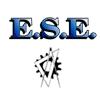Evaluation of corn particle size on the growth performance, gut permeability, pellet quality, and litter moisture of turkey hens raised without antibiotics
Published: February 27, 2023
Source : Alyssa Lyons* 1GS, Joe Moritz 2, Tim Boltz 3, John Boney 4, Michael Persia 1 / 1 Virginia Tech; 2 West Virginia University; 3 Mississippi State University; 4 The Pennsylvania State University.
An experiment was conducted to determine the effects of corn particle size (CPS) on turkey hen performance, intestinal permeability (IP), and litter dry matter. Hybrid turkey hens were housed in floor pens from 0 to 42d. Hens were fed a crumbled starter 1 (0 to 21d) and pelleted starter 2 (22 to 42d) diet. The experiment was a 2 x 2 factorial with diet phase (starter 1 and starter 2) and CPS (fine or coarse), resulting in 4 treatments of 18 replicates of 22 turkeys. Corn was manufactured using a hammermill with a 4.76 mm screen (581 µm; fine) or a 6.35 mm screen (964 µm; coarse). Pellet quality was determined using pellet durability index (PDI), modified pellet durability index (MPDI), and New Holmen Pellet Tester (NHPT). Body weight (BW) and feed offered and refused were measured on D0 and D42. Mortality corrected feed conversion ratio (FCRm) was calculated from 0 to 42 d of age. The IP was measured on D42 by orally gavaging one turkey per pen with 8.32 mg/kg of FITC-d dissolved in distilled water 1 h before blood collection. Blood was centrifuged to isolate serum. Litter dry matter content was measured on D42. Data were analyzed using JMP Pro 16.0 (P ≤ 0.05) and means were separated using Student’s t-test. Corn particle size did not impact the measured pellet quality variables (PDI, MPDI, and NHPT) in the starter 2 diets (P > 0.05). There were no interactions between dietary phase and CPS over the experiment. There was a main effect of BW over the starter 1 phase as hens fed fine corn resulted in increased FI (3.28 vs 3.22 kg/bd; P ≤ 0.01) and BW (2.49 vs 2.44 kg/ bd; P ≤ 0.01) compared to those fed coarse corn. Corn particle size did not alter FCRm (P > 0.05). The IP was not influenced by CPS in the starter 1 (P = 0.59) or starter 2 (P = 0.31) dietary phases when measured on D42. Litter dry matter content was not influenced by CPS of starter 1 (P = 0.13) or starter 2 (P = 0.62). These data indicate that fine corn increases both FI and BW of turkey hens when fed in the starter 1 diet, but had no effects on FCRm, gut permeability and litter dry matter content, or when fed in the starter 2 diets. Although critical for both feed intake and body weight in the starter 1 diets, fine corn may not be needed in the starter 2 diet to maximize turkey hen performance.
Key Words: corn particle size, turkey hens, gut permeability, dry matter.
Presented at the International Poultry Scientific Forum, during IPPE 2023, at the Georgia World Congress Center, Atlanta.
Content from the event:
Related topics:
Authors:

Recommend
Comment
Share

Would you like to discuss another topic? Create a new post to engage with experts in the community.









